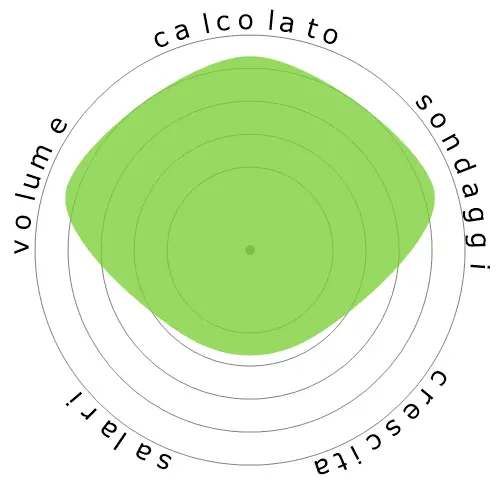Insegnanti di scuola secondaria, ad eccezione dell'istruzione speciale e tecnica/professionale




Le persone hanno anche visualizzato
Rischio di automazione calcolato
Rischio Minimo (0-20%): Le professioni in questa categoria hanno una bassa probabilità di essere automatizzate, poiché richiedono tipicamente la risoluzione di problemi complessi, creatività, forti competenze interpersonali e un alto grado di destrezza manuale. Questi lavori comportano spesso movimenti manuali intricati e una coordinazione precisa, rendendo difficile per le macchine replicare i compiti richiesti.
Ulteriori informazioni su cosa sia questo punteggio e su come viene calcolato sono disponibili qui.
Sondaggio degli utenti
I nostri visitatori hanno votato che c'è una bassa probabilità che questa professione sarà automatizzata. Questa valutazione è ulteriormente supportata dal livello di rischio di automazione calcolato, che stima una possibilità di automazione del 16%.
Cosa pensi sia il rischio dell'automazione?
Qual è la probabilità che Insegnanti di scuola secondaria, ad eccezione dell'istruzione speciale e tecnica/professionale venga sostituito da robot o intelligenza artificiale nei prossimi 20 anni?
Sentimento
Il seguente grafico è incluso ovunque ci sia una quantità sostanziale di voti per rendere i dati significativi. Queste rappresentazioni visive mostrano i risultati dei sondaggi degli utenti nel tempo, fornendo un'indicazione significativa delle tendenze di sentimento.
Sentimento nel tempo (annuale)
Crescita
Si prevede che il numero di offerte di lavoro per 'Secondary School Teachers, Except Special and Career/Technical Education' diminuirà 0,6% entro il 2033
Occupazione totale e stime delle offerte di lavoro
Le previsioni aggiornate sono previste per 09-2025.
Salari
Nel 2023, il salario annuo mediano per 'Secondary School Teachers, Except Special and Career/Technical Education' era di 65.220 $, o 31 $ all'ora.
'Secondary School Teachers, Except Special and Career/Technical Education' hanno ricevuto un salario 35,7% superiore al salario mediano nazionale, che si attestava a 48.060 $
Salari nel tempo
Volume
A partire dal 2023 c'erano 1.045.170 persone impiegate come 'Secondary School Teachers, Except Special and Career/Technical Education' negli Stati Uniti.
Questo rappresenta circa il 0,7% della forza lavoro impiegata in tutto il paese
In altre parole, circa 1 su 145 persone sono impiegate come 'Secondary School Teachers, Except Special and Career/Technical Education'.
Descrizione del lavoro
Insegna una o più materie agli studenti di scuola secondaria.
SOC Code: 25-2031.00


Commenti
Leave a comment
Due to remote learning and using similar designs that you mentioned, we have seen a 210% spike in high school drop outs, a 600% up shot of kids having at least 2-3 failing grades, and a gap between students who do not have access to tutors, internet or computers (or all three). A robot cannot tell an elementary student to reengage their students, let alone the sheer horror of classroom discipline being thrown out. Also, lets be real honest with secondary students, if they are given a generic problem trust me they will plagiarize and copy that down (just look at quizlet, or "write my paper" for proof). A human being needs to see if a student "gets" what is going on. A Teacher needs to have group interactions (and trust me you cannot do any sort of interactions with remote even with current programs- students just shut their cameras and mute themselves). Unless you are suggesting that a "few" will benefit from this dystopia, if so thank you Nancy Devos for your insight, but we educate everyone, and not the 1%.
Do you think the software being used led to those changes or the pandemic and economic downturn itself?
Easy to pass judgment when you have already drawn your conclusions. I've taught off and on since 2008 (mostly on, mostly secondary). Quizlet is the worst example you could provide of instructional technology we could employ to help all students.
When you discuss the one percent, you highlight a certain security the wealthy have that leads to less interruptions of education and that's a fair point. But I am not trying to describe a dystopia, but rather a better way to differentiate and tailor student learning to their particular needs, desires, strengths, and weaknesses.
Much of what effective teachers do is driven by inputs, points of data, about their students and their teaching. A properly designed system could analyze those inputs and apply strategies to intervene. It doesn't really matter the input, either.
Now that we are rolling out SEL technologies to help our kids, language translation applications that can help English learners, standards-based, interactively branching assessments and activities, the amount of information received is nothing trivial. The digital divide does truly make this a difficult prospect for some students, but that's not the question we are discussing here. Can teachers be replaced by "robots" in the future? Yes. Nothing would be more student-centred.
If the argument is about the socialization of students, that's not facilitated by teachers. It's actually stunted. Imagine learning plans that don't waste time with sages on stages. Imagine a truly adaptive system to check for understanding and intervene. Imagine that happening simultaneously for all students without the interruptions all teachers face daily just trying to teach. I realize virtual, and hybrid, learning did not go well for all students, but it was year one...something never attempted, and there was a society gone wild coupled with the inexperience of systems, personnel, and students.
I love teaching. I take it personally. But, if students were able to learn better from a robot than from me, I wouldn't take it personally. I'd celebrate it.
Learning with a teacher can mean a number of scenarios, including utilizing the learning software you mentioned.
The assurance of having someone who knows more than you, or at least knows where to find answers and explain them, will result in teachers have a very secure job.
I haven't even mentioned the emotional support and connection that makes a learning environment better, something I don't foresee AI replacing because seeing assuring words pop up on my screen is not the same as hearing it from a teacher, who is making eye contact with me and using body language.
Lascia un commento su questa professione